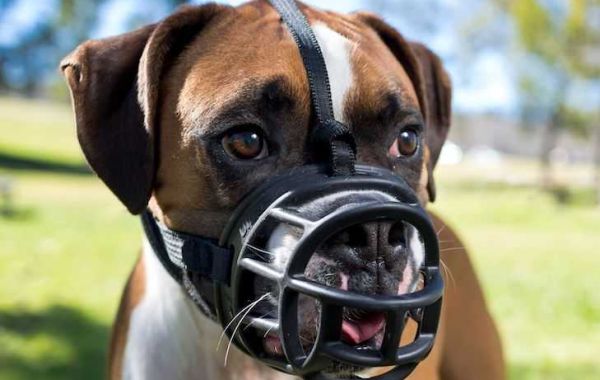Muzzles are valuable tools that can play a crucial role in ensuring the safety and well-being of dogs and those around them. Whether it's for training, behavior modification, medical purposes, or simply to prevent unwanted incidents, finding the right muzzle for your canine companion is essential. However, one size or type does not fit all when it comes to muzzles. The diversity among dog breeds and individual sizes requires careful consideration to select the most suitable muzzle. In this comprehensive guide, we'll try to answer whats a muzzle and delve into the intricacies of choosing the perfect muzzle tailored to your dog's specific breed and size.
Understanding the Purpose of Dog Muzzles
Before we dive into the details of selecting the right muzzle for your dog, it's essential to grasp the various reasons why you might need one. Muzzles serve several purposes, and understanding these purposes can help you make an informed decision.
Safety: Muzzles are often used as safety measures to prevent dog bites and aggression in situations where a dog may feel anxious, threatened, or unmanageable. This is especially crucial when dealing with unfamiliar environments, people, or animals.
Training and Behavior Modification: Muzzles can be valuable tools in dog training and behavior modification programs. They help trainers and pet owners safely work with dogs that have behavioral issues, such as excessive barking, chewing, or aggression.
Medical Care: Sometimes, a muzzle is necessary for medical procedures, grooming, or visits to the veterinarian. It ensures that the dog cannot bite or harm anyone while receiving necessary care.
Preventing Barking or Nipping: Muzzles can be used to control barking or nipping behavior in certain situations, such as during walks or social interactions.
Now that we've covered the various purposes of muzzles let's delve into the factors you should consider when choosing the right muzzle for your dog based on their breed and size.
Breed Considerations
Different dog breeds have distinct muzzle shapes and sizes. When selecting a muzzle, it's essential to take your dog's breed into account:
Short-Nosed Breeds (Brachycephalic): Breeds like Bulldogs, Pugs, and Boxers have shorter muzzles. They require muzzles designed to accommodate their unique facial structure.
Long-Nosed Breeds: Breeds such as Greyhounds, Collies, and Dobermans have longer, more slender muzzles. Muzzles for these breeds should provide a snug fit without restricting their ability to pant or drink water.
Giant Breeds: Large and giant breeds like Saint Bernards and Mastiffs need sturdy, durable muzzles that can handle their size and strength.
Small Breeds: Toy and small breeds, like Chihuahuas and Dachshunds, require muzzles specifically tailored to their tiny proportions.
Size Matters
In addition to considering your dog's breed, the size of your dog plays a critical role in selecting the right muzzle:
Measure Accurately: To ensure a proper fit, measure your dog's snout circumference and length. This will help you choose a muzzle that isn't too tight or too loose.
Adjustability: Look for muzzles with adjustable straps or buckles, as these can be customized to fit your dog's unique size and shape.
Comfort and Breathing: A well-fitted muzzle should allow your dog to pant and breathe comfortably. Ensure there's enough space for your dog to open their mouth slightly, but not enough to bite.
Muzzle Types
There are several types of muzzles available, each with its own design and purpose:
Basket Muzzles: These are often recommended because they allow dogs to pant, drink, and take treats. They come in various sizes to accommodate different breeds.
Soft Muzzles: These are made of soft materials like nylon or mesh and are suitable for short-term use or for dogs with sensitive skin.
Safety Muzzles: Designed for aggressive or unpredictable dogs, safety muzzles offer maximum restraint and protection.
Custom-Made Muzzles: If you have a dog with unique needs, consider having a muzzle custom-made to ensure a perfect fit.
Training and Desensitization
Introducing your dog to the muzzle gradually is essential. Most dogs may initially resist wearing a muzzle, but with patience and positive reinforcement, they can learn to accept it.
In conclusion, choosing the right muzzle for your dog's breed and size is a crucial step in ensuring their comfort and safety. Consider the purpose of the muzzle, your dog's breed and size, and the different types available. By doing so, you'll be able to select a muzzle that suits your dog's needs, ultimately enhancing their well-being and the safety of those around them. Remember, when in doubt, consult with a professional dog trainer or veterinarian for guidance in selecting the most appropriate muzzle for your furry friend.








